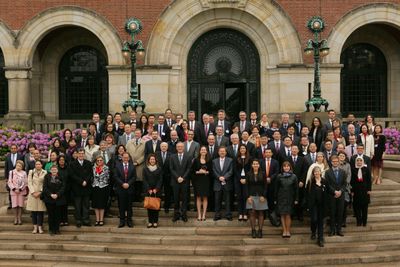Conclusion of the first meeting of the Special Commission on the Recognition and Enforcement of Foreign Judgments

From 1 to 9 June 2016, the Special Commission on the Judgments Project was convened in The Hague. The Special Commission was attended by 153 participants from 53 States and one Regional Economic Integration Organisation (“REIO”), representing Members of the Hague Conference on Private International Law, and a select number of non-Member States, and 16 international governmental and non-governmental organisations. The Special Commission took the text proposed by the Working Group as a basis for its work; it further developed this text and prepared a revised text of the future Convention, which will form the basis for discussion at the second meeting of the Special Commission to be held from 16 to 24 February 2017.
The Special Commission identified two main objectives of the future Convention:
a) to enhance practical access to justice, through the recognition and enforcement of judgments (which is relevant to the UN Sustainable Development Goals); and
b) to facilitate trade and investment, and contribute to economic growth, by enhancing legal certainty and reducing costs and uncertainties associated with cross-border dealings, and with the resolution of cross-border disputes.
The future Convention will contribute to these two objectives by –
a) promoting the circulation of judgments to which the Convention will apply, subject to certain appropriate safeguards;
b) reducing the need for duplicative proceedings in two or more Contracting States;
c) reducing the costs and timeframes associated with obtaining recognition and enforcement of judgments;
d) improving predictability for businesses and individuals in Contracting States in relation to the circumstances in which judgments will circulate among Contracting States; and
e) enabling claimants to make more informed choices about where to bring proceedings, taking into account their ability to enforce the resulting judgment in other Contracting States.
The future Convention is intended to sit alongside, and complement, the 2005 Choice of Court Convention.